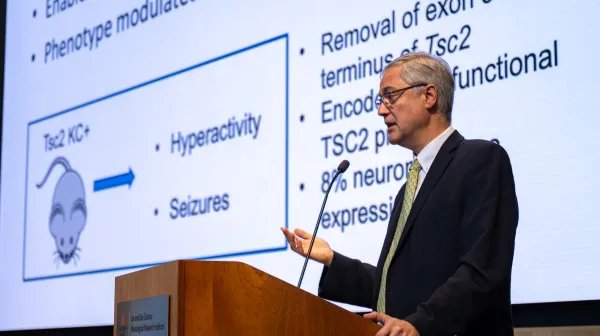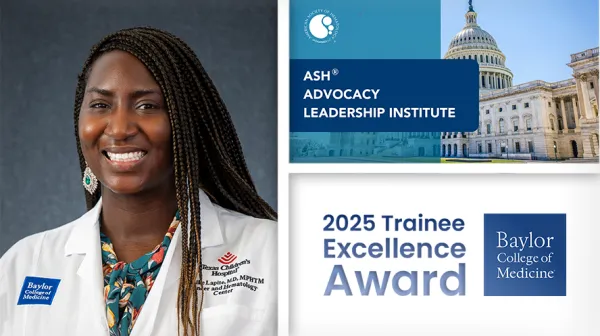HOUSTON - (June 25, 2014) - Patients who have received a bone marrow transplant, a lifesaving treatment for certain types of blood cancers and other hematologic and immunodeficiency disorders, are vulnerable to life-threatening infections due to their immunocompromised state post-transplant. Using specialized, virus-specific immune cells called T cells, researchers in the Center for Cell and Gene Therapy at Baylor College of Medicine, Texas Children's Hospital and Houston Methodist Hospital ( https://www.bcm.edu/centers/cell-and-gene-therapy) have identified a novel safe, effective and rapid approach to protect from the threat of multiple severe infections at once.
Results from this clinical trial were published today in the journal Science Translational Medicine.

The research team, led by Dr. Ann M. Leen, associate professor and the senior and corresponding author on the report, and Dr. Anastasia Papadopoulou, a postdoctoral fellow at Baylor at the time of the study and first author on the report, both in the Center for Cell and Gene Therapy, focused on the use of adoptive transfer of virus-specific T cells.
In healthy individuals, T cells help the body fight infection by recognizing viruses and destroying virally infected cells. In immunocompromised patients such as those who have undergone a bone marrow transplant, these cells are lacking and thus cannot provide the same protection.
A bone marrow transplant is a procedure to replace damaged or destroyed bone marrow (soft, fatty tissue inside your bones) with healthy bone marrow stem cells (cells in the bone marrow that give rise to all of your blood cells.) In certain types of cancer such as leukemia, lymphoma and myeloma, bone marrow transplants are conducted following high-intensity chemotherapy or radiation to patients who are at a high-risk for recurrence of the disease
Severe viral infections occur in the majority of patients and are fatal in 17 to 20 percent of cases. Conventional antiviral medications are expensive, frequently ineffective and highly toxic.
Leen and her colleagues sought to develop a new therapy where they could grow a patient new virus-specific killer T cells in the laboratory using the Center for Cell and Gene Therapy's novel manufacturing technology. Then, they transferred these cells back to the patient to restore their anti-viral immunity.
The cells developed in the laboratory, made in just 10 days, targeted five viruses that cause significant morbidity and mortality - Epstein-Barr virus, adenovirus, cytomegalovirus, BK virus, and Human Herpesvirus 6 (HHV6.)
They studied 11 patients who received an allogeneic transplant (transfer of stem cells from a healthy "donor" to the patient) as treatment for a variety of conditions including leukemia, lymphoma, sickle cell disease and other hematologic and immunodeficient disorders.
T cells were obtained from the blood of each patient's bone marrow donor.
Eight of the patients had up to four active infections with the targeted viruses. Three patients received the modified T cell therapy to prevent infection.
In all, the virus-specific T cells produced an overall 94 percent virological and clinical response that was sustained long term.

"This study translated improved manufacturing techniques developed in Dr. Leen's laboratory to the clinic and showed that virus specific T cells produced with the new method could target new viruses and be ready for clinical use after 10 days," said Dr. Helen Heslop, director for the Center for Cell and Gene Therapy and clinical principal investigator of the study. "These advances mean that this therapy could be available for more patients to treat viral infections and provide long lasting protection."
Additionally, the team demonstrated for the first time that the BK virus and HHV6 reactivations could be controlled using adoptively transferred T cells.
Currently used antiviral medicines are not very effective against these viruses. "For example, for adenovirus the best medicine is only 50 percent effective; whereas, if you train cells to fight adenovirus directly, it's almost 100 percent effective. And it's more of a natural way of fighting the virus," said Dr. Kathryn Leung, assistant professor in the Center for Cell and Gene Therapy and a co-author on the report.
"Unlike conventional anti-viral drugs, our therapy improves virus-specific T cell immunity - the root cause of post-transplant viral infections - providing both an effective and safe strategy to treat viruses," said Leen, also a member of the NCI-designated Dan L. Duncan Cancer Center at Baylor and the Texas Children's Cancer Center. "Additionally, we can readily produce both individualized (patient-specific) products and T cell banks for third party use, facilitating the extension of T cell therapy to a standard of care for transplant recipients."
In the past, T cell treatments took as long as three months to manufacture.
Additional co-authors on the report include Ulrike Gerdemann, Usha L. Katari, Ifigenia Tzannou, Hao Liu, Caridad Martinez, George Carrum, Adrian P. Gee, Juan F Vera, Robert A. Krance, Malcolm K. Brenner and Cliona M. Rooney, all of the Center for Cell and Gene Therapy.
Funding for this study was provided by the Production Assistance for Cellular Therapies (PACT) program of The National Heart, Lung, and Blood Institute; the Clinical Research Center at Texas Children's Hospital and the Dan L. Duncan Institute for Clinical and Translational Research at Baylor.
About Texas Children’s Hospital
Texas Children’s Hospital, a not-for-profit health care organization, is committed to creating a healthier future for children and women throughout the global community by leading in patient care, education and research. Consistently ranked as the best children’s hospital in Texas, and among the top in the nation, Texas Children’s has garnered widespread recognition for its expertise and breakthroughs in pediatric and women’s health. The hospital includes the Jan and Dan Duncan Neurological Research Institute; the Feigin Center for pediatric research; Texas Children’s Pavilion for Women, a comprehensive obstetrics/gynecology facility focusing on high-risk births; Texas Children’s Hospital West Campus, a community hospital in suburban West Houston; and Texas Children’s Hospital The Woodlands, a second community hospital planned to open in 2017. The organization also created the nation’s first HMO for children, has the largest pediatric primary care network in the country and a global health program that’s channeling care to children and women all over the world. Texas Children’s Hospital is affiliated with Baylor College of Medicine. For more information, go to www.texaschildrens.org. Get the latest news by visiting the online newsroom and Twitter at twitter.com/texaschildrens.









